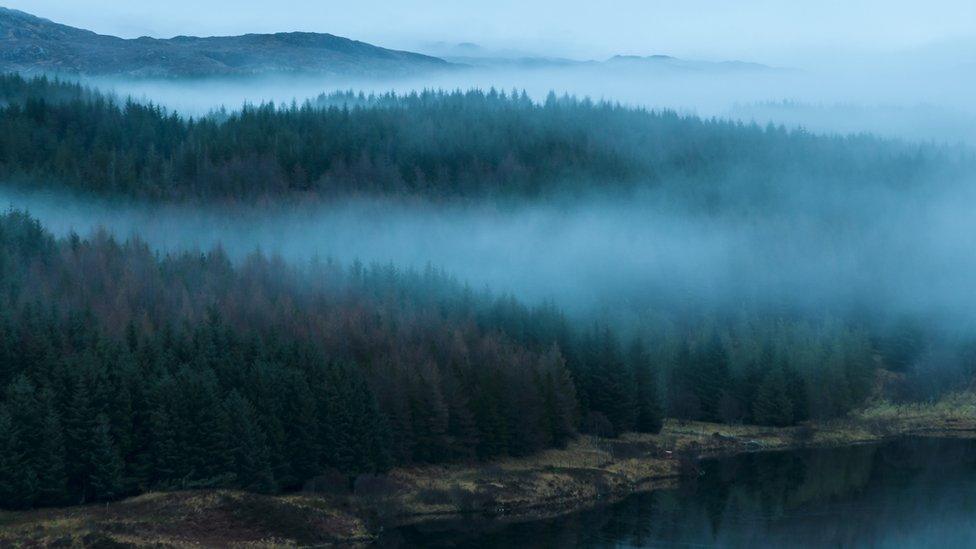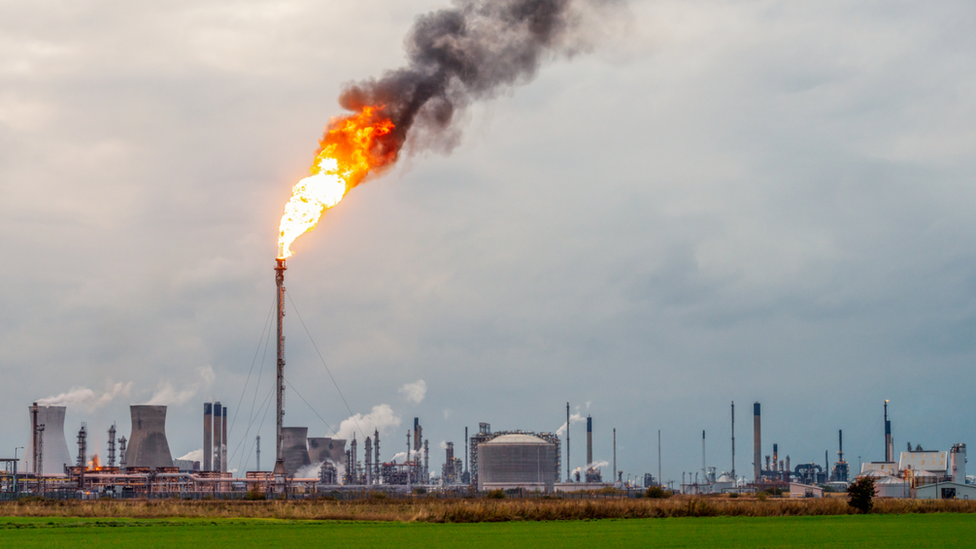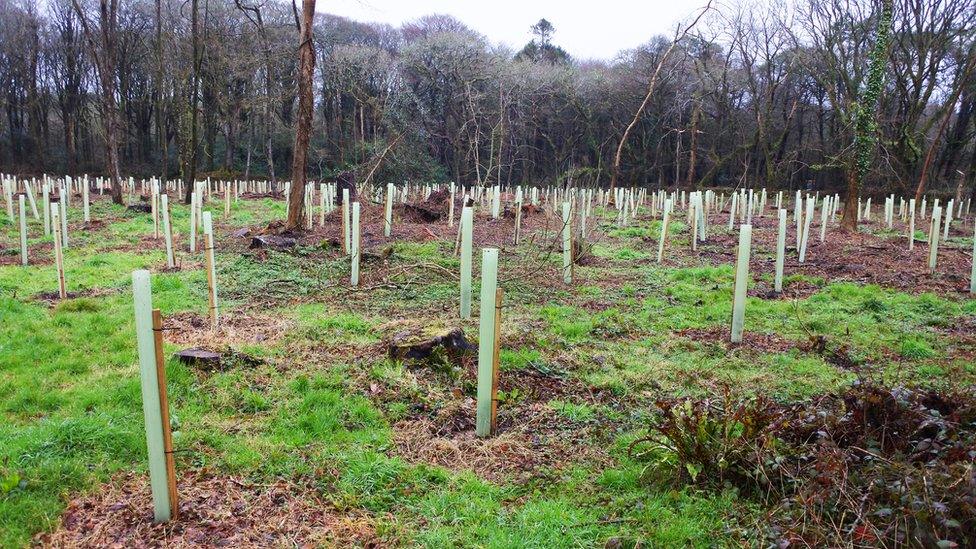Scotland 'could be net-zero for greenhouse gas emissions'
- Published
- comments

Scotland could become net-zero for greenhouse gas emissions by 2045, according to a new report.
The study, for WWF Scotland, says reaching the target could be achieved "comfortably" if there is a political and social will for change.
It follows a report to the UN last year which warned of the consequences of not achieving targets on global warming.
The Scottish government has said it will set a net-zero target once it has a clear pathway to achieving it.

What does Net-Zero mean?

The terms Carbon Neutral and Net-Zero are often used interchangeably but there are differences.
Carbon dioxide (CO2) is the most abundant greenhouse gas but there are others which the Scottish government counts and they are not all carbon-based.
Therefore some climate change campaigners prefer the term Net-Zero as it includes not just CO2 and methane but also nitrous oxide, which is emitted during agricultural and industrial activities as well as from fossil fuels.
Simply being carbon neutral would not stop global warming because these other gases are also harmful to the atmosphere.
Perhaps an even better term would be 'climate neutral'.

Greenhouse gases
A new Climate Change Bill is currently being debated at Holyrood which proposes reducing harmful emissions by 90% by 2050 - up from a previous target of 80%.
The target covers a "basket" of greenhouse gases including carbon dioxide and methane.
The report, by Vivid Economics, says Scotland has "multiple advantages" to help it reach net-zero, such as an abundant potential for renewable energy and a large land mass for increased forest cover.
Trees act as a "carbon sink" by soaking up carbon dioxide, meaning some industries would be able to continue emitting gases.
The power and transport sectors can reach zero or near-zero emissions through advances in technology and a transition to electric vehicles, the report concludes.
Emissions in industry, it adds, can be reduced by at least 60% without damaging productivity while agriculture could achieve a 35% drop while maintaining current production levels.
'Credible route'
Gina Hanrahan, of WWF Scotland, said: "It's crucial MSPs, who are about to start debating the new Climate Change Bill, confront the challenge head on and join the growing number of progressive nations by setting an iconic net-zero target and speeding up the policy action need to end our climate emissions once and for all.
"This report makes clear that there is a credible route map for Scotland to achieve net zero in the 2040s.
"We are laden with natural advantages for net zero. From our abundant renewable energy resource, to our large land area suitable for carbon sinks, to our history of innovation and skilled workforce, this new report shows we can hit net zero before other UK nations and be among the global leaders on this issue."
The UN Paris Agreement commits signatories to keep global temperatures "well below" 2C compared with pre industrial levels and "endeavour to limit" them to 1.5C.
A report last year by the Intergovernmental Panel on Climate Change (IPCC) warned that whole ecosystems would essentially be wiped out if the lower target was not met.
Following the IPCC's report, the Scottish government asked the independent Committee on Climate Change for fresh advice on its proposed targets.

Maarten Hage, of Vivid Economics, said: "A strong long-term emission target can unlock low carbon opportunities for Scotland.
"In particular due to its large per capita land area, Scotland is well placed to pursue emissions reductions through afforestation and other low carbon land management practices.
"Although there is uncertainty as to the precise scope and scale of deployment, what is clear is that these options are vital to achieving net-zero and realising the ambitions of the Paris Agreement."
'Change course'
Scottish Greens climate change spokesman Mark Ruskell MSP welcomed the WWF study, saying the expert warnings of a climate emergency "could not be any starker".
He added: "We have just over a decade to change course but SNP ministers show no increased ambition.
"By embracing an early target for net-zero we can protect our communities from climate catastrophe and drive the innovation needed to create new jobs, warm homes, sustainable food production and better public transport."
A Scottish government spokesman said it would set a target date for net-zero emissions of all greenhouse gases as soon as it could be done "credibly and responsibly".
He added: "We are currently awaiting independent expert advice on targets from our statutory advisors, the UK Committee on Climate Change.
"If the Committee advises that a date for net-zero emissions can now be credibly set, we will act on that."